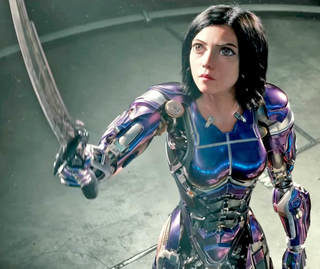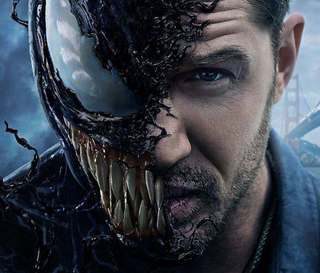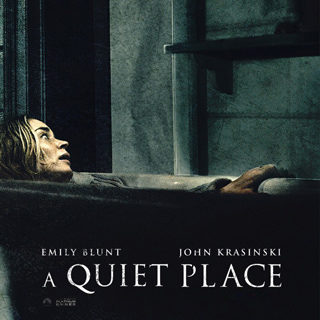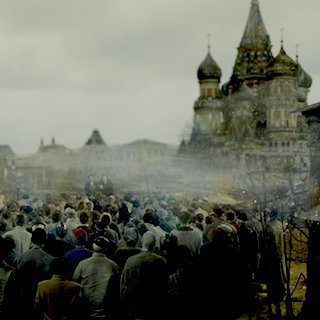«Once… in Hollywood”: he did it again
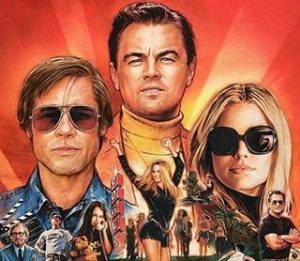 “He did it again, “the guy behind me said with some undisguised admiration, as soon as” Once… in Hollywood” (Once Upon A Time In Hollywood) ended and went to credits. And at first I really wanted to agree with him. But all -??? in this movie Tarantino not simply showed the, that knew how before, but and something new.
“He did it again, “the guy behind me said with some undisguised admiration, as soon as” Once… in Hollywood” (Once Upon A Time In Hollywood) ended and went to credits. And at first I really wanted to agree with him. But all -??? in this movie Tarantino not simply showed the, that knew how before, but and something new.
There is a genre of “slice of life”in online fiction. It is usually translated into Russian as “everyday” — and it is best suited to describe what is happening in “Hollywood”. For two and a half hours, the viewer is simply shown a few days from the life of the characters of the picture, without giving, it would seem, any specific tie, which will eventually unfold in the final. And something in it subtly resembles “Pulp fiction” – although the films are far from each other, as Shanghai from Larnaca.Rick Dalton, a fading Hollywood star played by Leonardo DiCaprio, is trying to cope with his fading situation. Two joys in his life-his own house, not a rented house, and a stuntman, a friend,” more than a brother, and a little less than a wife ” cliff Booth played by brad pitt, who will fall off the horse for him, and fix the antenna, and in the evening with him a beer to drink. Most of the film is even a road movie, where the two of them or separately move from location to location, and the road here is almost more important than the destination. Next door to Rick settle Roman Polanski and Sharon Tate, played by Margot Robbie — they, unlike Rick, enjoy life and success.
It’s 1969, and the film is still based on the case of Charlie Manson, his followers and their terrible murders. But Tarantino deals with real historical events in a peculiar way: he carefully, to the smallest detail copies the entourage of the era, even produces short excerpts of films to insert into televisions, and the basis of history for him, on the contrary, is not indestructible. This has already been met, for example, in “inglorious bastards”, where Hitler was stuffed with lead from a machine gun in the corporate style of the Director. The emphasis is a bit off: it could be a movie about Sharon Tate, but in the end it’s a movie about Sharon Tate’s neighbors.
In network slang, there is a term “cinnamon bun” – they call a charismatic, charming, lively character, who for some reason is not very lucky in life, but the audience he causes sincere sympathy and a weakling for his character characteristics are not considered. In the creation of Tarantino such a bun is just Rick Dalton: the way he experiences his problems with his career, how he rejoices in success, how he persuades himself, encourages, how literally two seconds sobs into the shoulder of a friend, and then, spitting on the dirty asphalt, nervously inhales a cigarette, furtively sniffing – all this makes the character surprisingly human and real. Maybe I just watched a bad movie for a very long time and have not met high-quality acting for a long time, and so Dalton played by DiCaprio so impressed me and caused such deep feelings that sometimes I just wanted to wrap him in a blanket, sit by the fireplace and drink margaritas, telling stories — but he somehow immediately became my friend.
The world around the characters of “in this city” can change at the click of your fingers, some kind of pool party can become fateful, where someone accidentally meets someone. The main feature of the picture-the spirit, atmosphere, light mood of eternal summer, the soul has not yet shaken by the carnage of Hollywood, where life is easier, more measured, and the movie was shot better.
And in this measured, Sunny world-holiday there is a place and horrendous moments in which cliff Booth shines (and in his image brad pitt, rather, is similar not to brad pitt, but to a well-eaten Steven Tyler), and these moments do not arise out of nowhere, the viewer is gently brought to them, gradually increasing anxiety and bringing it to an absurd intensity. But cliff is a character who is assigned the role of “cool” in the film, and so with problems, whether it’s a crowd of unfriendly residents of a distant ranch, a broken antenna or a show-off fight with a kung fu star, he copes playfully, as if it’s just another day on the set, where you need to risk your life a little.
Against the backdrop of all the lingering summer extravaganza, there is a nostalgic longing for the bygone Golden era of Hollywood. Sharon Tate goes to the movies, watches how the audience reacts to episodes with her, and is happy if she can bring a smile. Rick Dalton comes to terms with the fact that he is already on the back of history, agrees to a passing role, but puts all his skill into it, because he is “Rick, his mother, Dalton” and can not otherwise. Cliff Booth, standing on the roof without a t-shirt, remembers that a couple of hours ago again a little spoiled his career, but it was fun, so why be nervous?
The entire the film — this one thing large mood, assembled from mosaics small individual of emotions and episodes, seem whatever something routine, secure, but together constitute an interesting mixture of, in which bitterness about ruined past is mixed with reluctance this past forget. The most important thing in “Hollywood” is not the classic juicy meat grinder for Tarantino, but the spirit of the city, the days of glory and prosperity of which the Director seeks to extend.
Strange, perhaps, to say this, but ” Once… in Hollywood ” – the most gentle, kind and most in love with the movie Tarantino film. It has a car and a small cart of scenes that you want to remember, and all these little pieces are separate “thank you”, homages to the era when cinema was quite different, and not just references to the classics, plucked from the widest cinema Outlook of Tarantino. This Manifesto of love, in addition to the actors who played the main characters, was joined in episodes by al Pacino and Timothy Dalton, Kurt Russell and Damian Lewis — and strangely, there was no place for Samuel L. Jackson. But each of them was inscribed in the moment of the era brightly, wide, sweeping strokes, only emphasizing the entire atmosphere.
Saying “He did it again” is wrong. This time Tarantino did not do that, but something new. Something a little more intimate, lively, albeit permeated with irony, humor and sadness, passed on a couple of topical issues in our time, but full of not only personal Director’s fetishes, but also hopes. This is a film about love — and about love of the most different. And first of all-about the love of cinema.
